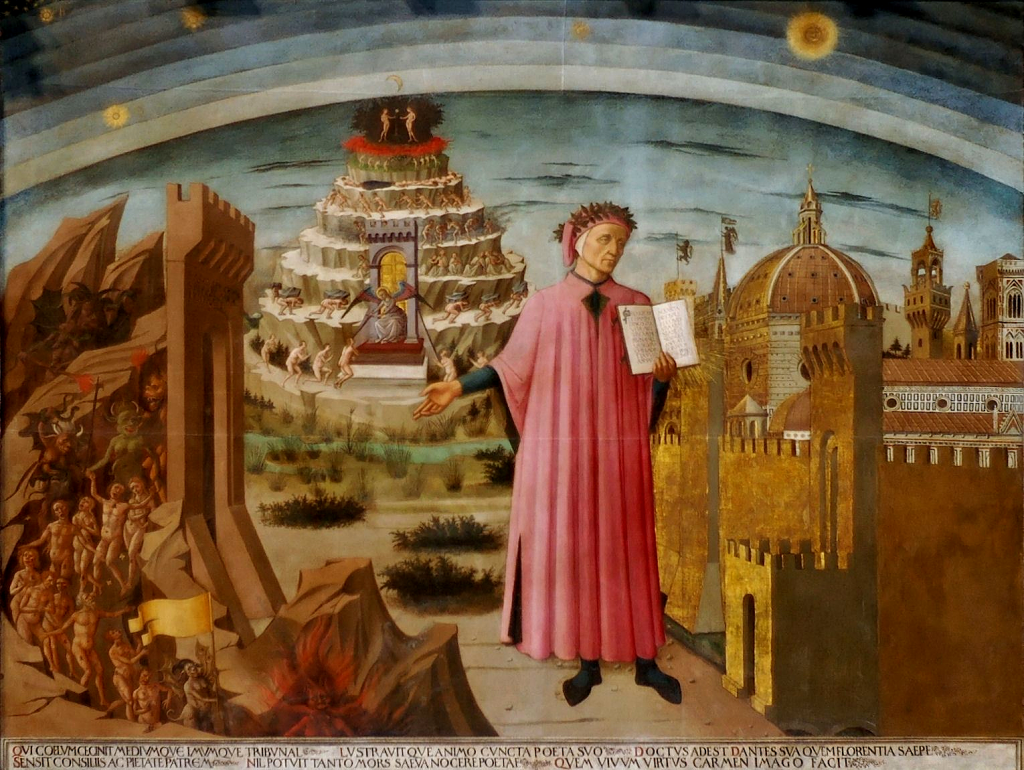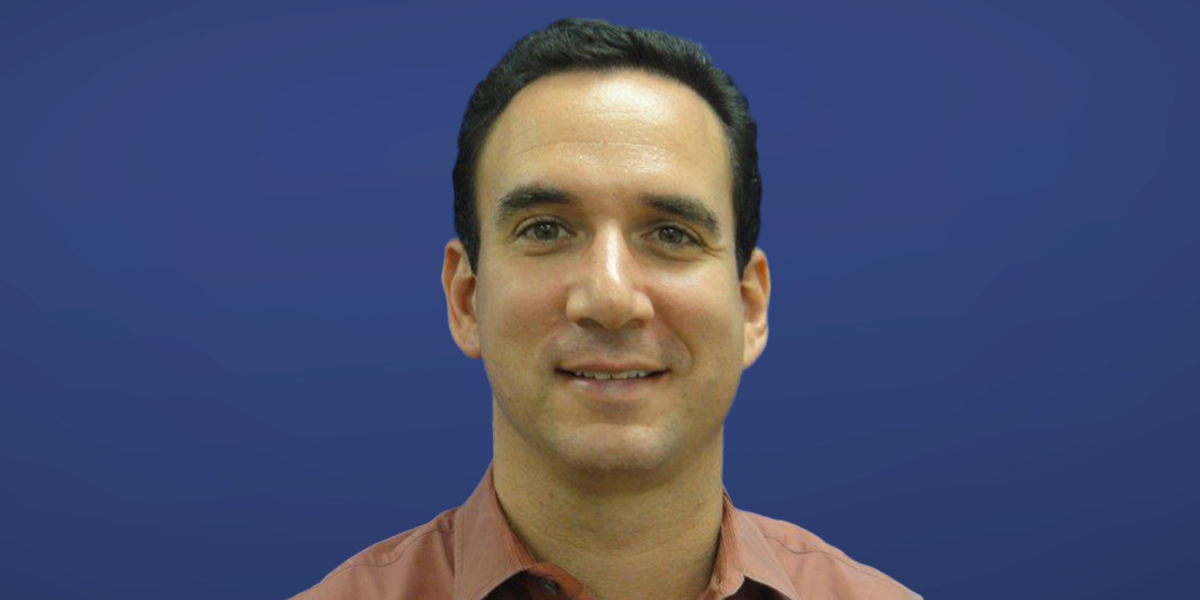“Dante and Shakespeare divide the modern world between them; there is no third.” —T.?S. Eliot
“Abandon all hope ye who enter here.”—Dante
Hell
The humanities are a crucial companion any time, but particularly during times of crises. Stories that echo from the past remind us of the endless cycle of the human journey. From Boccaccio’s Decameron, to Dafoe’s Diary of the Plague Year, and Camus’ The Plague, to centuries of stories about epidemics and modern plagues, the importance of documenting those narratives appears critically important now. Pandemic reading lists have been pervasive (I chose to reread Blindness, Station Eleven, The Road, and The Stand).
These human crises wear different clothes, different allusions and words, but the emotions, the responses, and the humanity sing familiarly through time. They are about plagues, yet are allegories with universal messages and stories.
What better moment to understand our approach to reach into the lessons from, for many, the greatest piece of literature: Dante’s Inferno? The Inferno, as all great literature, echoes with numerous meanings. Our 21st century mind reads this medieval work through a very different lens. Much of what I read now, I compare to how we as a nation could have fought back coronavirus and claw out of this morass. You can read the Inferno as a spiritual, religious, political, or personal journey. For me, our COVID journey resonates, as our map shines bright red with hot spots. Can Dante help us in understanding where we are heading? My scientific mind opens up the arts to find lessons.
Pull up a chair as we read in the backyard of 2020, a year blowing with the ambience of the east’s hurricane force winds, beside the west’s flaming firepit, with stairs leading into the deepest depths of Mordor.
700 years ago, Dante wrote his epic poem in isolation, during his political quarantine, after being exiled from Florence. The Commedia wouldn’t exist if it weren’t for his forced isolation. He wrote a timeless beauty during his own dark times. His exile was a complete removal from society, from life. We aren’t in as an extreme isolation as Dante, as he couldn’t return to his home at all, and here we are stuck in our homes, with its creature comforts. He was undertaking a soul-searching journey. No backyard BBQ with friends, no UberEats, no Prime deliveries, and he could never return to Florence, his true home. But he survived due to his art and his introspection. His isolation echoes our own pause.
I’ve tried to climb down into Dante’s world many times over the years. This graph below shows my limited ability to make it past the first few of the 34 cantos in the Inferno: the first of three books. I’ve felt trapped in this literary video game, unable to make it past the initial levels. What better time to see if I can make it to the end, as we live out a real-world version of his travels. The Inferno is called a comedy, the Commedia, for it ultimately has a happy ending. A journey of redemption, in search of love and truth, and joining of the soul with God. Dante will eventually arrive in Paradise, breaking on through to the other side. I know we will make it there, too. Eventually. But for now, let’s see what the early travels can teach us.
The opening line is the most famous:
“Halfway along this journey in our life,
I woke in wonder in a sunless world,
For I had wandered from the narrow way”

Source: Wikipedia
Canto I
Begun in 1300 AD, just before dawn on Good Friday, in April, almost 720 years from when we began our journey in isolation in March 2020, Canto I is a prologue to the rest of the journey. It’s a failed short journey. Thinking it would be easy to get out of the narrow way, just up this little hill, Dante is quickly thwarted in his trek up the path, to the light he so craves. Instead, his journey will be long and arduous. Dante shows us a common failing right from the start: looking for the easy way out.
How many times do we look for shortcuts? Seven months into our journey through COVID-19, we continue to search for the simple answer in a complicated environment. We look for that medicinal miracle cure. It will just disappear. Take this pill. Eat this plant. Just live normally. Unfortunately, the work will be hard. Our exit sign won’t be the vaccine alone. It will be a multipronged approach, with everyone doing their part: masking, distancing, testing, tracing, isolating, vaccinating, newer treatments, societal changes.
In the 2nd Canto, Dante is greeted by Virgil. The mentor, the guide, THE VOICE OF “THE GIFT” OF THE INTELLECT the “great prince of poetry.”
“Now let me tell you what I think is best:
I’ll be your guide, and you will follow me,”
These difficult journeys are softened when we follow a good mentor. I made it through residency and my early career with incredible mentors who didn’t have all the answers, but helped guide during those difficult times. Who can guide us through the cloudy climate? Who are our personal Virgils? Our national Virgils? Dante seeks a divine answer, which we know, as humans, we can’t provide. But we can seek out guides, to help iterate, incrementally improve, and guide us along our paths. Guides can get us closer to the truth.
We continue our COVID-19 hell without a plan or a guide, or at best, ill-informed and misleading guides. Dante had at least a mentor on his journey. Virgil, the greatest poet offered advice, suggestions and helped keep Dante on the path. When we lack mentors or choose false prophets, our journey will be less likely to be successful. Who are your guides, in life, in this coronavirus journey?
Canto II
In Canto II, “daylight was fading.” Dante realizes “how hard a journey was in store, how much I would be moved by pity for the dead.”
Canto II reflects the early days, when we were filled with fear, lacking clarity on what lay ahead. Signs of hell in healthcare emerged, with overwhelmed hospitals, PPE shortages, staffing issues, and the unknown. The fog cleared up a bit, we know what to expect, but it seems at times we are still wandering through the mist, with further descent inevitable in parts of the country.
Months into this pandemic we still lack vital information. We can’t test fully or rapidly. Schools reopened, but so did bars and restaurants and other high-risk locations.
It took us two months to tell everyone to wear masks, and many still won’t. Why does the resistance to masks perpetuate? A mask mandate can be the simplest, cheapest step of many to help us climb up instead of down. How does this simple measure become a political prop? Canto III tells us what’s to come if we can’t abide by even the simplest of solutions: “Abandon all hope ye who enter here.”
“see the guilty souls of those/Who have lost the good of the intellect.”
In 14th century Venice, during the Black Death, when public health was born, public health officials’ ability to usurp rule was acceptable. Public health magistrates were established for the first time, with powers to lead during periods of plagues. These are who we need in charge, not some charlatan who urges unproven cures, or falsifies the numbers, absolving themselves of responsibility. The intellect should be at the podium. Informed decisions, from politics to economics to science, working together. We wander from Draconion to complete reopening, but there lay a middle ground.
We seek the light, want to reach the truth, but the truth is a fog. Dante progressed along an unclear path, for two-thirds of his journey. We want a clear answer, but none can be found. And we all wander in different paths. The truth in science is that the truth of today can change tomorrow, but we are hopefully venturing closer each day.
Contradictions and changes in guidelines occur regularly; that’s part of the work, of the descent, but we can find hope in that this can lead to the light.
Canto III
Dante wants you to take a stand. In Canto III, drawing into the main circles of hell, lie those who don’t take a stand, those who “merely stood aside.” They are in a constant state with “a babel of tongues, great shrieks of horror.” There is no pity here for these baseless souls. This reminds me of the aspect of medicine that always felt suppressed: being taught and mentored either openly or more often as part of a hidden curriculum, to remain agnostic, impartial, objective. But we have a voice and we need to speak up.
Canto IV
Canto IV begins the entry into the First Limbo, those born before Christianity, who were never baptized. Here Dante reminds us of some of the wisest of the Ancients, including the medicine leaders of yore: Hippocrates, Avicenna, and Galen. There is no room for ignorance here – only learning from our past masters. A call upon the healthcare leaders to be given the voice to lead us out before we fall lower.
Canto V / When Do We Reach the Light?
We are barely an 1/8th through Dante’s journey, and beginning to feel “forever doomed! Heaven’s beyond your hope!” (III.74) Are we only that far along in our journey? As deaths reach an astounding 2000 per day, we seem complacent with the continued descent.
I know that being home for Thanksgiving, with my four instead of the usual 40, is certainly not a version of hell. Yet, I know for those in the hospital, without a day off, it begins to feel like it daily. One 12-hour shift in the hospital gives me a headache. And, of course, those who lost loved ones, or who are hospitalized now, or recovered and face long hauler symptoms, live a potentially preventable nightmare.
We are 9 months in. We can’t lock down again, but we can’t let herd immunity policies take hold. Those who have the means have navigated easily. This doom is in those without means. In knowing vaccines are on the horizon, I ponder those who could be a preventable COVID-19 tragedy in just a few short months?
We must do the work, speak up, find our guides, and allow voices of science lead alongside policy makers if we are to ascend to the other side. I’m exhausted through 8 months and a handful of cantos, as I know many of you are. Is it the halfway point? Are we heading in the right direction, or are we still descending? The virus seems be the only one who knows until we have a national plan on testing, masking, school and business reopening, and much more.
I’m hopeful, if we listen to science and read the arts. If we come together as a community. If we choose our mentors wisely, and if we work hard, we will realize that our journey will ultimately prove successful. For the over 12 million already infected, for the over 250,000 already dead, for the inequity in this journey, the hellish reminders are too visible and all present. One foot in front of the other, and we will rise from this fall.
The backyard winds are dying down. There is a light in the distance. I will get to Canto V. We will emerge from this challenge as we’ve done for human existence.
We will get to the light.
“For evil, in the end, gave rise to good.” —Dante, Canto 1
Extra Notes
Quotes from the Inferno are from the Elio Zappulla translation of Dante’s Inferno.
My online pandemic Virgil’s have included Andy Slavitt, Colleen Kraft, Uché Blackstock, Bob Wachter, Eric Topol, Ashish Jha, and Carlos Del Rio. They will arm you with much of what you need to understand and navigate this pandemic.



Leave A Comment